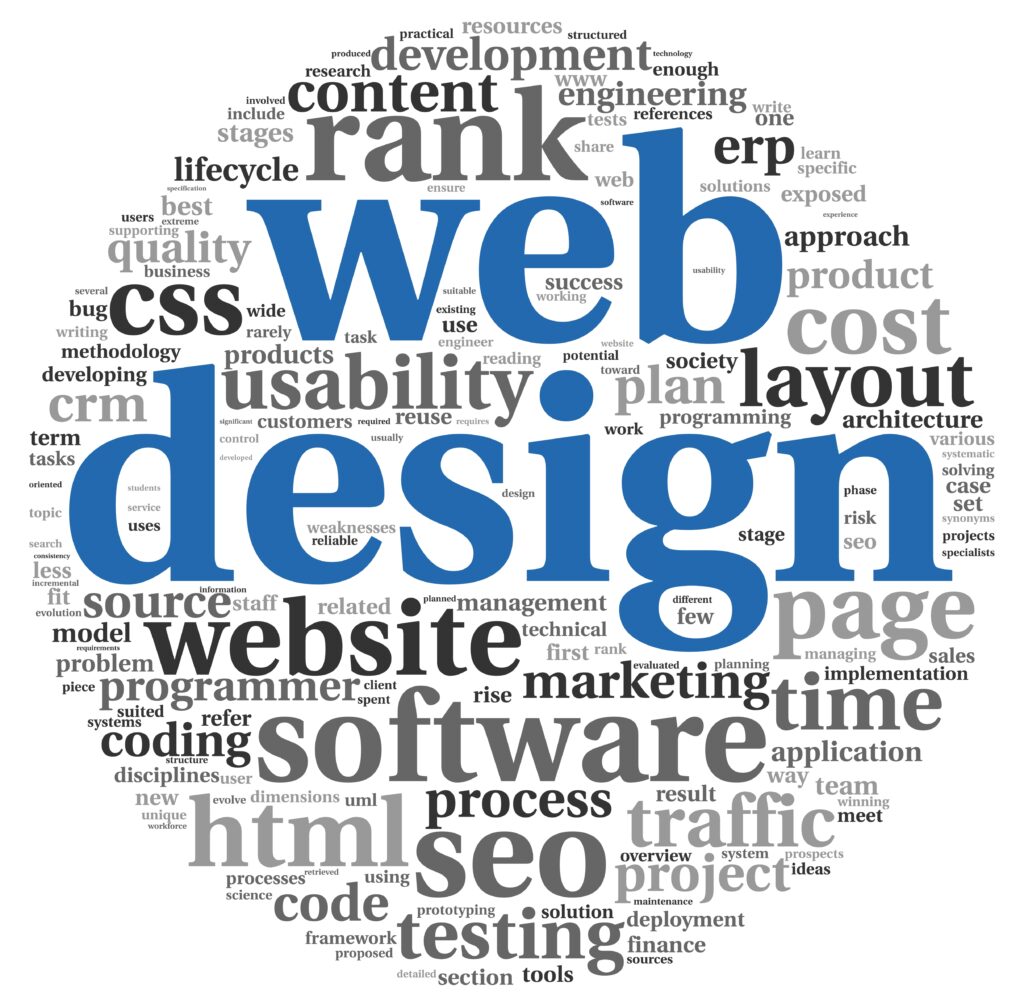In the fast-paced and competitive world of manufacturing, having a strong digital presence is no longer optional — it’s a necessity.
As more business-to-business (B2B) buyers begin their research online, your website is often the first interaction potential customers, suppliers and partners will have with your business. It serves as your digital storefront, your first impression and a powerful sales tool all in one.
That’s why it’s critical to make sure your manufacturing website is more than just a brochure — it needs to be a high-performing, conversion-driven tool equipped with the right functionality. By including key manufacturing website features, you can foster trust, drive engagement and generate qualified leads around the clock.
Your website should work as hard as you do.
In this blog post, we’ll explore the most important manufacturing website features that every company needs to succeed in today’s digital landscape.
Table of Contents

1. Clean and Professional Design
First impressions matter. A clean, professional website design instills confidence and credibility in your brand. Your website should be easy to navigate, free of clutter and visually aligned with your brand identity.
Key Elements:
- Clear logo placement
- Easy-to-read fonts
- Intuitive menu and navigation
- Consistent color schemes
- Responsive design for all screen sizes
2. Clear Value Proposition
What sets your manufacturing company apart? Make your value proposition clear right from the homepage. Visitors should understand within seconds what your company does and why they should choose you.
Tips for a Strong Value Proposition:
- Use concise language
- Highlight key products or services
- Emphasize experience and expertise
- Include a powerful heading and subheading
3. Product and Service Pages
Manufacturers need dedicated pages that showcase their products and services in detail. These pages should include specifications, benefits, use cases and high-quality images.
Must-Haves for Product/Service Pages:
- Organized categorization
- Downloadable brochures or spec sheets
- Inquiry or quote request forms
- High-resolution images or videos

4. Lead Generation Forms
Your website should include multiple opportunities for visitors to contact you or request information. Lead generation forms allow you to capture important data and turn visitors into prospects.
Lead Capture Elements:
- Contact forms
- RFQ (Request for Quote) forms
- Newsletter signup forms
- Pop-ups with calls-to-action (CTAs)

5. Search Engine Optimization (SEO)
SEO for manufacturers is critical to drive organic traffic from search engines. Your website should be optimized for relevant keywords, including long-tail keywords specific to your industry and location.
SEO Best Practices:
- Optimized title tags and meta descriptions
- Descriptive URLs
- Image alt text
- Keyword-rich content
- Fast page loading speeds
6. Mobile Responsiveness
More users are browsing on mobile devices than ever before. A mobile-responsive website ensures that your site functions well and looks great on smartphones and tablets.
A Mobile-Friendly Design Includes:
- Flexible layouts
- Clickable CTAs
- Readable text without zooming
- Mobile navigation menus
7. Fast Load Times
Page speed is not just a user experience factor — it’s also a Google ranking factor.
A slow website can drive potential customers away before they even see what you offer.
Ways to Improve Site Speed:
- Compress images
- Minimize CSS and JavaScript
- Use a reliable hosting provider
- Enable browser caching

8. Case Studies and Testimonials
Social proof builds trust. Having real-world examples of how your company has delivered value can convert more prospects into customers.
Effective Case Studies Include:
- Client background
- The problem and your solution
- Quantifiable results
- Client quotes or testimonials

9. Secure Hosting and HTTPS
Website security is paramount, especially for manufacturers handling sensitive information. Use a secure hosting provider and implement HTTPS with an SSL certificate to encrypt data and build trust.
Website Security Essentials:
- SSL certificate (HTTPS)
- Regular software updates
- Security plugins
- Daily backups
10. About Us Page
People want to do business with companies they trust. Your About Us page should humanize your brand, share your story and highlight your leadership team, values and mission.
What to Include:
- Company history
- Leadership bios
- Core values
- Certifications or awards
11. Blog and Resource Center
Consistent blogging improves SEO and positions your company as a thought leader in the manufacturing industry. A resource center with guides, videos and downloadable content also adds value.
Content Ideas:
- Industry insights
- How-to guides
- Product spotlights
- Maintenance tips
- Trade show highlights

12. Contact Information
Make it easy for visitors to reach you. Include contact information in your header, footer and on a dedicated contact page.
Contact Info Should Include:
- Phone number
- Email address
- Physical address
- Contact form
- Map integration
13. Compliance and Accessibility
Your website should be accessible to all users, including those with disabilities, and compliant with legal standards.
Accessibility Features:
- Alt text for images
- Screen reader compatibility
- Keyboard navigation

14. Analytics and Tracking
To improve your website, you need to know how it's performing. Analytics tools help you track user behavior, traffic sources and conversion paths.
Recommended Tools:
- Google Analytics
- Google Search Console
- Heatmaps
- Conversion tracking
Implement Manufacturing Website Features That Set You Up for Success
A well-designed site with the right manufacturing website features can be a powerful tool for attracting and converting high-quality leads. From SEO and mobile responsiveness to product pages and case studies, each element plays a vital role in your online success.
At Driven Digital, we specialize in building websites for manufacturers. If you're ready to level up your manufacturing website features, contact our team today to learn more about how we can help.